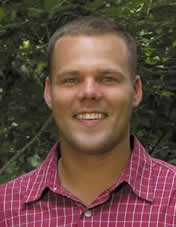Student Disengagement
The article entitled, “A Very Long Disengagement” is by Mark Bauerlein, professor of English at Emory University. Bauerlein argues that students are less and less engaged each year and that many students lack basic knowledge about history, civics, literature, the arts, geography, and politics. He makes a strong case for how the media has shaped students’ lives and how it leads to more disengagement. From the article:
We can be certain that they have mastered the fare that fills their five hours per day with screens — TV, DVD, video games, computers for fun — leaving young adults with extraordinarily precise knowledge of popular music, celebrities, sports, and fashion. But when it comes to the traditional subjects of liberal education, the young mind goes nearly blank. In the last few years, an accumulation of survey research on civics, history, literature, the fine arts, geography, and politics reveals one dismal finding after another. The surveys vary in sample size and question design, and they tend to focus on basic facts, but they consistently draw the same general inference: Young people are cut off from the worlds beyond their social circuit. While the wealth and education of young Americans has increased, their knowledge levels have either dropped or remained flat in the following important areas.
The article proceeds to discuss some of the research and provides illustrations from his own experience as a professor.





